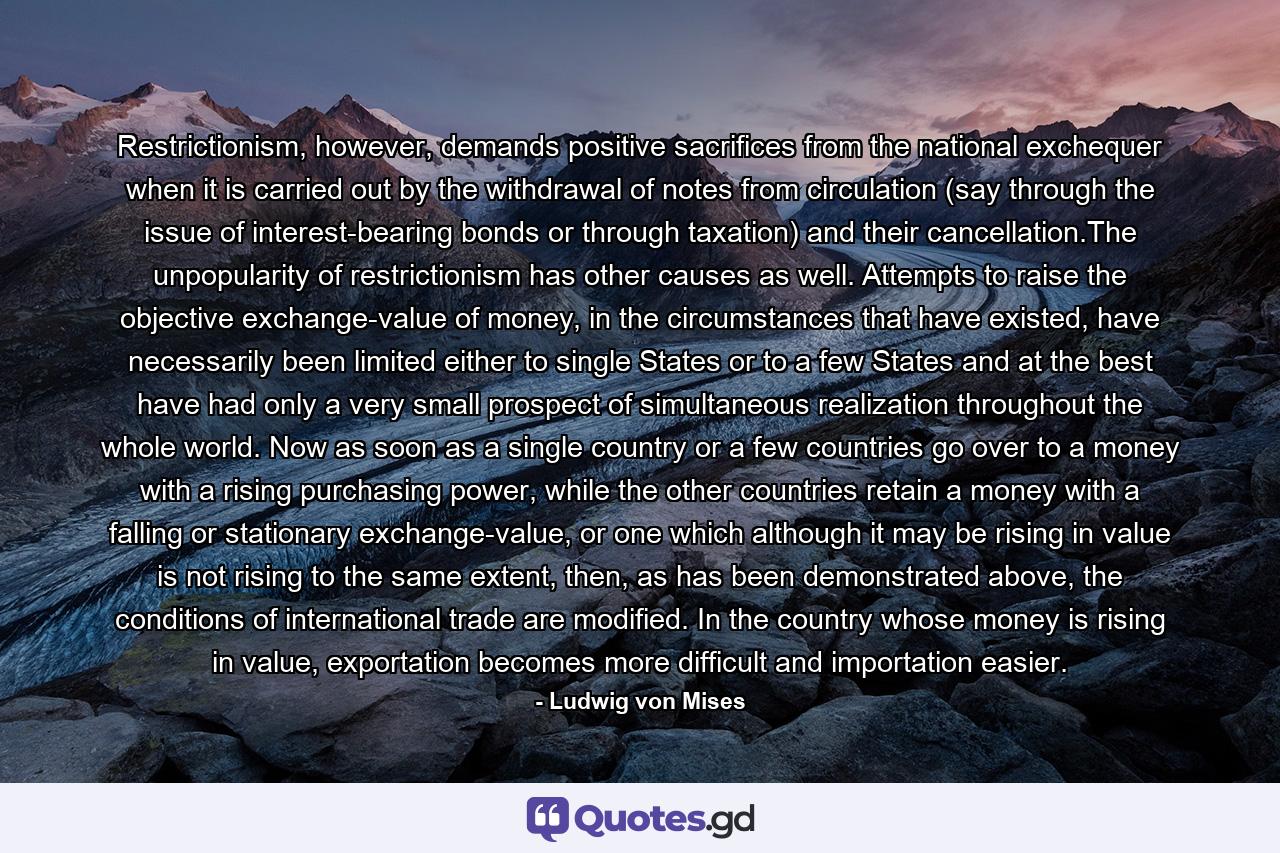Restrictionism, however, demands positive sacrifices from the national exchequer when it is carried out by the withdrawal of notes from circulation (say through the issue of interest-bearing bonds or through taxation) and their cancellation.The unpopularity of restrictionism has other causes as well. Attempts to raise the objective exchange-value of money, in the circumstances that have existed, have necessarily been limited either to single States or to a few States and at the best have had only a very small prospect of simultaneous realization throughout the whole world. Now as soon as a single country or a few countries go over to a money with a rising purchasing power, while the other countries retain a money with a falling or stationary exchange-value, or one which although it may be rising in value is not rising to the same extent, then, as has been demonstrated above, the conditions of international trade are modified. In the country whose money is rising in value, exportation becomes more difficult and importation easier.
